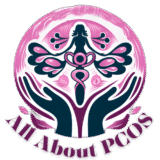Introduction
Polycystic Ovary Syndrome (PCOS) is a multifaceted condition, often clouded by myths and misconceptions, especially concerning fertility. This article delves into the heart of a crucial question many women with PCOS grapple with: “Are PCOS Patients Infertile?” It’s a question that carries significant emotional weight and practical implications for those dreaming of motherhood.
Fertility concerns in women with PCOS are not just medical; they’re deeply personal, intertwined with dreams, fears, and often, misinformation. The narrative surrounding PCOS and infertility tends to be oversimplified, leading many to believe that a PCOS diagnosis equates to an inability to conceive. This article aims to unravel these complexities, offering a beacon of understanding in a sea of half-truths.
Our journey begins by exploring what PCOS is, not just as a medical condition, but as a lived experience affecting millions of women globally. PCOS is often depicted as a villain in the fertility story, but this portrayal misses the nuances and the very real experiences of women who navigate this condition daily. We’ll explore the symptoms of PCOS, particularly focusing on how they relate to fertility issues. From irregular menstrual cycles to hormonal imbalances, each symptom weaves into the larger tapestry of understanding fertility in the context of PCOS.
As we challenge the stigma surrounding PCOS and fertility, it’s essential to recognize the spectrum of experiences. Fertility is not a binary concept, especially for women with PCOS. There’s a wide range of experiences – from those who face significant challenges to those who conceive naturally. By acknowledging this spectrum, we hope to provide a more realistic and compassionate perspective on PCOS and fertility.
This article isn’t just about facts and figures; it’s a narrative that intertwines medical knowledge with personal experiences, aiming to inform, inspire, and empower. Whether you’re a woman with PCOS, a healthcare professional, or someone supporting a loved one with PCOS, this exploration is for you – a journey towards understanding, hope, and empowerment.
Understanding PCOS and Its Symptoms
Polycystic Ovary Syndrome (PCOS) is a complex endocrine disorder, and its understanding is pivotal in addressing fertility concerns. This section aims to provide a comprehensive overview of PCOS, focusing on its symptoms, prevalence, and impact on fertility, guided by insights from a significant review article titled “Infertility management in women with polycystic ovary syndrome: a review”.
PCOS Overview
Definition and Prevalence
PCOS is recognized as the most prevalent endocrine disorder among women, with an estimated 5% to 15% global prevalence. This wide range underscores not only its commonality but also the variability in its diagnosis and presentation. The condition is a frequent cause of infertility, making an understanding of its mechanics crucial for those seeking to conceive.

Diagnostic Criteria
The diagnosis of PCOS follows the criteria established by the European Society of Human Reproduction and Embryology and the American Society for Reproductive Medicine in 2003. These criteria focus on symptoms such as irregular menstrual cycles, polycystic ovaries visible in ultrasounds, and elevated levels of androgens (male hormones) in the body.
Symptoms and Their Impact on Fertility
Hormonal Imbalances
One of the primary features of PCOS is hormonal imbalance, particularly the overproduction of androgens. These hormonal irregularities can lead to various symptoms such as excessive hair growth, acne, and scalp hair thinning. More critically, they disrupt the normal ovulatory cycle, posing challenges to fertility.
Irregular Menstrual Cycles
Women with PCOS often experience irregular or prolonged menstrual cycles. This irregularity is a direct consequence of infrequent or prolonged ovulation, making it challenging to predict fertile windows and consequently affecting fertility.
Polycystic Ovaries
The term ‘polycystic’—meaning ‘many cysts’—refers to the enlarged ovaries containing numerous small follicles that fail to develop properly due to hormonal imbalances. While these are not cysts in the typical sense, their presence is a hallmark of PCOS and contributes to ovulatory dysfunction.
Linking Symptoms to Subfertility
Ovulatory Dysfunction and Infertility
PCOS is the leading cause of ovulatory disorders, which are responsible for infertility in approximately 25% of couples. Specifically, PCOS accounts for around 70% of these cases. The link between PCOS and infertility is primarily through disrupted ovulation, which complicates natural conception.
The Role of Lifestyle and Weight Management
Lifestyle modifications, particularly those aimed at weight loss, are crucial in managing PCOS. Weight reduction can help optimize hormonal imbalances, improve lipid profiles, and enhance overall cardiovascular health. These changes can positively impact fertility by regularizing menstrual cycles and improving ovulation frequency.
Advanced Treatment Options
Assisted Reproductive Technologies
For women with PCOS who struggle to conceive, assisted reproductive technologies like in vitro fertilization (IVF) represent a viable option. However, it’s essential to approach these treatments with caution, particularly regarding the dosage of gonadotropins, to minimize the risk of ovarian hyperstimulation syndrome (OHSS), a potential complication in PCOS patients.
Understanding PCOS is crucial in addressing the fertility challenges it presents. By comprehending its symptoms, diagnostic criteria, and the link between these symptoms and fertility, women with PCOS can better navigate their journey towards conception, whether through natural means or assisted technologies. This knowledge, coupled with lifestyle and medical interventions, offers hope and pathways for managing fertility in the context of PCOS.
Debunking the Infertility Myth
In addressing the fears and misconceptions surrounding PCOS and infertility, it’s crucial to distinguish between reduced fertility and absolute infertility. This distinction is not just a matter of semantics; it’s a fundamental aspect that reshapes the narrative of PCOS and fertility, offering hope and clarity to many.
Fertility Challenges vs. Absolute Infertility
Misconceptions and Realities
- Myth: PCOS automatically means infertility.
- Reality: Women with PCOS often face challenges with fertility, but it does not mean they are infertile. Many can and do conceive naturally or with assistance.
Understanding Reduced Fertility
- The term ‘reduced fertility’ is more accurate for PCOS. It means that while conceiving may be more challenging, it is certainly not impossible. This distinction is essential for understanding and approaching PCOS-related fertility issues with a more positive outlook.
Statistics and Studies: Shining a Light on Facts
Fertility Rates Among Women with PCOS
- Despite the challenges, a significant number of women with PCOS conceive successfully. The statistics paint a more nuanced picture than the prevailing myths suggest.
Research Findings
- Recent studies demonstrate that with the right treatment and lifestyle changes, the majority of women with PCOS can conceive. This fact is crucial in changing the perception of PCOS from a sentence of infertility to a condition that requires a different approach to conception.
The Role of Treatment and Management
Early Diagnosis and Proactive Management
- Recognizing and managing PCOS symptoms early can significantly improve fertility outcomes. This involves regular medical consultations and personalized treatment plans.
Success Stories through Assisted Reproduction
- Assisted reproductive technologies like IVF have shown high success rates in women with PCOS. These stories further debunk the myth that PCOS equates to infertility.
Empowering Women with PCOS
Shifting the Focus from Despair to Hope
- It’s time to shift the narrative from despair and misinformation to one of hope and empowerment. Women with PCOS should be encouraged to explore all avenues – from natural conception to medical assistance.
Building a Supportive Community
- Having a strong support system, whether it’s through healthcare providers, online communities, or family and friends, can make a significant difference in managing PCOS and fertility issues.

The myth that PCOS is synonymous with infertility needs to be dismantled. Women with PCOS face unique challenges, but with the right information, support, and medical care, many can achieve their dreams of motherhood. It’s about changing the narrative, focusing on what’s possible, and providing hope where there’s been misunderstanding. This article aims to be a part of that positive change, guiding women with PCOS towards a future filled with possibilities.
Treatment and Management Strategies for Fertility
For women with PCOS who are navigating the complexities of fertility, understanding the various treatment and management strategies available is crucial. This section delves into the array of options that can enhance fertility prospects, emphasizing that a PCOS diagnosis does not close the door to the dream of motherhood.
Medical Interventions for Fertility Enhancement
Pharmacological Treatments
- Clomiphene Citrate: Often the first line of treatment, this medication stimulates ovulation, enhancing the chances of conception.
- Metformin: Used particularly in PCOS patients with insulin resistance, Metformin can improve ovulation and has been linked to improved pregnancy rates.
- Gonadotropins: For those who do not respond to oral medications, injectable gonadotropins can be used to stimulate the ovaries to produce multiple eggs.
Surgical Options
- Laparoscopic Ovarian Drilling (LOD): A minimally invasive surgery that can induce ovulation in women who haven’t responded to pharmacotherapy.
Lifestyle and Diet Adjustments
Weight Management
- A modest weight loss of 5-10% can significantly improve ovulation and pregnancy rates in overweight women with PCOS.
- Regular physical activity and a balanced diet are key components in achieving and maintaining a healthy weight.

Dietary Choices
- A diet low in refined carbohydrates and high in fiber can help manage insulin levels, a crucial factor in PCOS management.
- Incorporating whole foods, lean proteins, and healthy fats can improve overall health and potentially enhance fertility.
Holistic and Alternative Approaches
Stress Reduction Techniques
- Practices like yoga, meditation, and mindfulness can reduce stress, which is known to affect hormonal balance and ovulatory regularity.
Herbal and Natural Supplements
- Certain supplements like Inositol, Omega-3 fatty acids, and Vitamin D have been shown to improve metabolic and reproductive aspects of PCOS.
- It’s important to consult a healthcare provider before starting any supplements, as they can interact with other medications.
Assisted Reproductive Technologies (ART)
In Vitro Fertilization (IVF)
- IVF is often considered when other treatments have not resulted in pregnancy.
- Women with PCOS undergoing IVF need careful monitoring to prevent complications like Ovarian Hyperstimulation Syndrome (OHSS).
Intrauterine Insemination (IUI)
- IUI can be a less invasive and more cost-effective option compared to IVF, suitable for some women with PCOS.
Monitoring and Regular Medical Consultation
Importance of Regular Health Checks
- Regular monitoring of reproductive health, hormonal levels, and overall well-being is crucial in managing PCOS and enhancing fertility.
- Establishing a close relationship with a healthcare provider can ensure personalized and effective treatment strategies.
Embracing a Multidisciplinary Approach
Combining Treatments for Optimal Results
- Often, a combination of treatments — lifestyle changes, medication, and assisted reproduction — offers the best chance for successful conception.
- A holistic approach, addressing physical, emotional, and mental health, is key to managing PCOS and fertility.
The journey to motherhood for women with PCOS may be complex, but it is far from impossible. An array of treatment options, both medical and lifestyle-oriented, are available to address fertility challenges. It’s about finding the right combination that works for the individual, guided by informed medical advice and personal health goals. The message is clear: with the right approach, women with PCOS can nurture their dreams of becoming mothers. This section serves as a comprehensive guide to the various paths that can lead to a successful pregnancy, illuminating the road for those navigating the often daunting journey of fertility with PCOS.
Personal Stories and Experiences
In the journey of managing PCOS and fertility concerns, personal stories and experiences provide not just inspiration, but also practical insights. Hearing from women who have navigated similar paths can be incredibly empowering. This section shares real-life experiences, alongside professional insights, offering a more personal perspective on managing PCOS and fertility.
Real-Life Success Stories
Overcoming PCOS Challenges
- Stories of women who faced fertility challenges due to PCOS but eventually conceived, highlighting their journeys, treatments, and lifestyle changes, can be found all over the internet, specifically on YouTube and on Google, by doing a quick search.
- These narratives often include a mix of medical interventions, alternative therapies, and significant lifestyle adjustments.
The Emotional Rollercoaster
- Accounts of the emotional aspects of dealing with PCOS and fertility issues, such as anxiety, depression, and hope.
- These stories underline the importance of mental and emotional support during this challenging journey.
Diverse Paths to Motherhood
- An exploration of the various paths to motherhood taken by women with PCOS, including natural conception, fertility treatments, and adoption.
- These stories reflect the diversity of experiences and choices available to women with PCOS.
Professional Insights
Expert Opinions on PCOS Management
- Healthcare professionals specializing in PCOS contribute their perspectives on treatment options and patient success stories.
- These insights provide a deeper understanding of the medical aspects of PCOS and fertility.
The Importance of Individualized Care
- Discussions on the importance of personalized treatment plans, as PCOS manifests differently in each individual.
- Emphasis on the need for a tailored approach in managing symptoms and enhancing fertility.
Lessons Learned
Key Takeaways from Personal Journeys
- Identification of common themes and lessons from the shared stories, such as the importance of early diagnosis and proactive management.
- Insights into the emotional resilience and persistence required to navigate the challenges of PCOS and fertility.
Advice to Others on a Similar Path
- Practical tips and advice from women who have been through the journey, offering guidance to those just starting out.
- These include recommendations on seeking support, staying informed, and maintaining a positive mindset.
Building a Supportive Community
The Role of Support Groups and Online Forums
- Exploration of how support groups, both online and in-person, have played a crucial role in providing emotional and informational support.
- These communities offer a platform for sharing experiences, advice, and encouragement.

Connecting with Others
- Stories of how connections made in these groups have led to lasting friendships and a strong support network.
- Highlighting the importance of community in overcoming the challenges of PCOS and fertility issues.
The personal stories and experiences shared in this section are not just narratives; they are testaments to the resilience and strength of women dealing with PCOS and fertility challenges. They provide not only hope but also practical insights and a sense of community. Through these stories, we aim to build a bridge of understanding and support, connecting women with PCOS across the globe in their shared journey towards achieving their dreams of motherhood. This section is a celebration of their journey, a source of inspiration, and a reminder that while the path may be difficult, it is certainly not impossible.
Conclusion and Empowerment
As we conclude this exploration of PCOS and fertility, it’s essential to reflect on the journey we’ve taken. From understanding the nuances of PCOS to debunking myths about fertility, the goal has been to empower women with information, hope, and practical strategies. PCOS, a condition marked by its complexity, presents unique challenges, but as we’ve seen, it also opens the door to a range of possibilities for managing fertility.
The journey of each woman with PCOS is unique, and while challenges are a given, they are not insurmountable. As the article “Infertility management in women with polycystic ovary syndrome: a review” aptly puts it, “Lifestyle changes, promoting weight loss, are the first-line treatment recommended for women with PCOS to optimize hormonal imbalance, lipid profile, and cardiovascular health”. This statement underscores the importance of proactive health management, emphasizing that the journey to fertility with PCOS often begins with personal lifestyle choices.
Embracing a Positive Outlook
The Power of Information
- Armed with knowledge about PCOS and its impact on fertility, women can make informed decisions about their health and treatment options.
- Understanding the condition diminishes fears and misconceptions, replacing them with a sense of control and empowerment.
Hope in the Midst of Challenges
- The stories and experiences shared by women with PCOS serve as powerful reminders that success is possible.
- This journey, though filled with ups and downs, can lead to fulfilling outcomes, be it natural conception, successful fertility treatments, or other paths to motherhood.
The Role of Support and Community
Beyond Individual Efforts
- The importance of a supportive community, whether found in healthcare providers, support groups, or within one’s personal network, cannot be overstated.
- These support systems provide not just emotional backing but also practical advice and shared experiences.
A Collective Voice
- By sharing stories and information, women with PCOS contribute to a collective voice that challenges stigma and misinformation.
- This collective effort paves the way for greater awareness and better healthcare resources for PCOS.
Moving Forward with Strength and Determination
Empowerment Through Action
- Taking charge of one’s health, exploring treatment options, and making lifestyle changes are all empowering steps.
- Each action taken is a step towards managing PCOS and enhancing fertility, embodying strength and determination.
While PCOS is a complex and often challenging condition, it is not a definitive barrier to fertility. With the right information, support, and medical care, women with PCOS can navigate their path to motherhood. This journey is about transforming challenges into opportunities for growth, learning, and ultimately, success. As we move forward, let us carry the message of hope and empowerment, reminding ourselves and others that with PCOS, as with many of life’s challenges, there is always a way forward.




